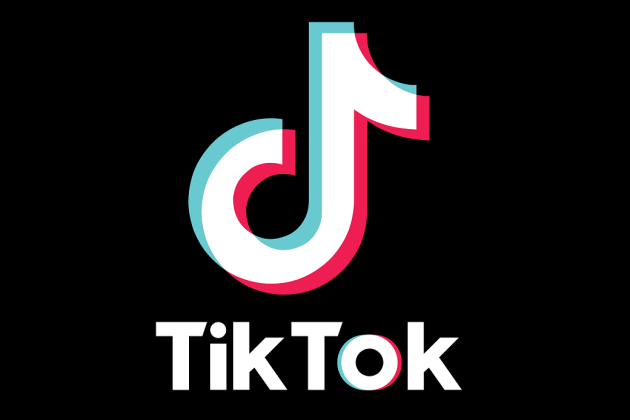U.S. Lawmakers Introduce Bills to Ban TikTok, Citing Risk of China ‘Spying’ on Americans
- Oops!Something went wrong.Please try again later.

Legislation seeking to ban TikTok in the U.S. has been officially introduced in Congress, in an effort led by GOP Sen. Marco Rubio.
In announcing the legislation, Rubio’s press office cited the “risk of TikTok being used to spy on Americans” by the Chinese communist regime. TikTok, which boasts more than 1 billion users for its short-form video entertainment app, has been a political football since its inception because it is owned and controlled by Chinese internet giant ByteDance.
More from Variety
“This isn’t about creative videos — this is about an app that is collecting data on tens of millions of American children and adults every day,” Rubio said in a prepared statement about the Senate bill. “We know it’s used to manipulate feeds and influence elections. We know it answers to the People’s Republic of China. There is no more time to waste on meaningless negotiations with a CCP-puppet company. It is time to ban Beijing-controlled TikTok for good.”
Rubio’s proposed legislation introduced in the Senate — titled the “Averting the National Threat of Internet Surveillance, Oppressive Censorship and Influence, and Algorithmic Learning by the Chinese Communist Party Act,” or ANTI-SOCIAL CCP Act — would prohibit all transactions from any social media company located in (or under the influence of) China, Russia, Iran, North Korea, Cuba and Venezuela. U.S. Representatives Mike Gallagher (R-Wis.) and Raja Krishnamoorthi (D-Ill.) introduced companion legislation in the U.S. House of Representatives.
The ANTI-SOCIAL CCP Act calls on the U.S. president to exercise powers under the International Emergency Economic Powers Act “to block and prohibit all transactions in all property and interests in property” in the U.S. of any social media company that is based in China or one of the other countries deemed hostile to American interests.
In a statement, TikTok spokesperson Hilary McQuaide said, “It’s troubling that rather than encouraging the [Biden] administration to conclude its national security review of TikTok, some members of Congress have decided to push for a politically motivated ban that will do nothing to advance the national security of the United States.”
TikTok “is loved by millions of Americans who use the platform to learn, grow their businesses and connect with creative content that brings them joy,” McQuaide continued. “We will continue to brief members of Congress on the plans that have been developed under the oversight of our country’s top national security agencies — plans that we are well underway in implementing — to further secure our platform in the United States.”
TikTok had 111 million average monthly active users in the U.S. from January-November 2022, up 22% from the same period last year, according to mobile data and analytics provider data.ai (formerly App Annie).
Rep. Gallagher, who has called TikTok “digital fentanyl that’s addicting Americans,” alleged that the app not only collects troves of data on U.S. citizens but also censors news. “Allowing the app to continue to operate in the U.S. would be like allowing the U.S.S.R. to buy up the New York Times, Washington Post, and major broadcast networks during the Cold War,” he said in a statement.
It’s not the first time American politicians have tried to ban TikTok.
Donald Trump, in the final months of his term as U.S. president, issued an executive order that threatened to ban TikTok in the country unless ByteDance sold a controlling interest in TikTok to American investors. U.S. federal courts blocked Trump’s order. In June 2021, President Biden officially revoked Trump’s executive orders seeking to ban TikTok while also launching an investigation into apps that have ties to “foreign adversaries” that may pose national security or data privacy risks.
This summer, nine GOP senators revived concerns about TikTok’s China ties, sending TikTok CEO Shou Zi Chew a letter “demanding answers on TikTok’s backdoor data access for Beijing.” That was triggered by a June 17 BuzzFeed News report that TikTok employees in China have “repeatedly” accessed U.S.-based users’ data. According to Chew’s response to the GOP senators, the access TikTok granted staffers in China to U.S. user data is part of efforts to shut off that access — with a goal of making “substantive progress toward compliance with a final agreement with the U.S. Government that will fully safeguard user data and U.S. national security interests.”
Separately, on Tuesday a group of 15 Republican state attorneys general sent letters to the CEOs of Apple and Google urging the companies to reclassify TikTok with a “mature” rating (or 17 and older) in their app stores, citing occurrences of adult content on TikTok. Apple’s App Store rates TikTok as appropriate for users 12 and older, while Google Play applies a “teen” rating. This summer, TikTok said it was rolling out a system to flag content with “overtly mature themes.”
Last week, Indiana Attorney General Todd Rokita (who cosigned the letters to Apple and Google) filed two lawsuits against TikTok, alleging the company falsely said told users their data is not shared with the Chinese government and that it misrepresented the age-appropriateness of content on the app.
Best of Variety
Sign up for Variety’s Newsletter. For the latest news, follow us on Facebook, Twitter, and Instagram.
